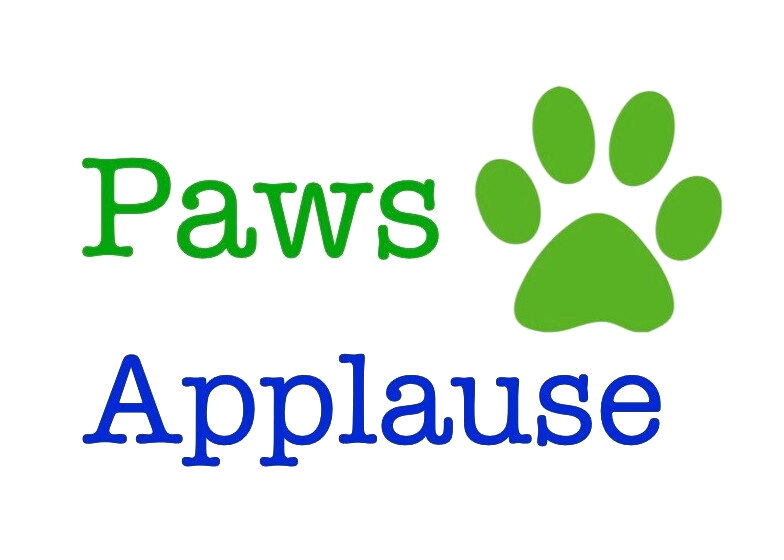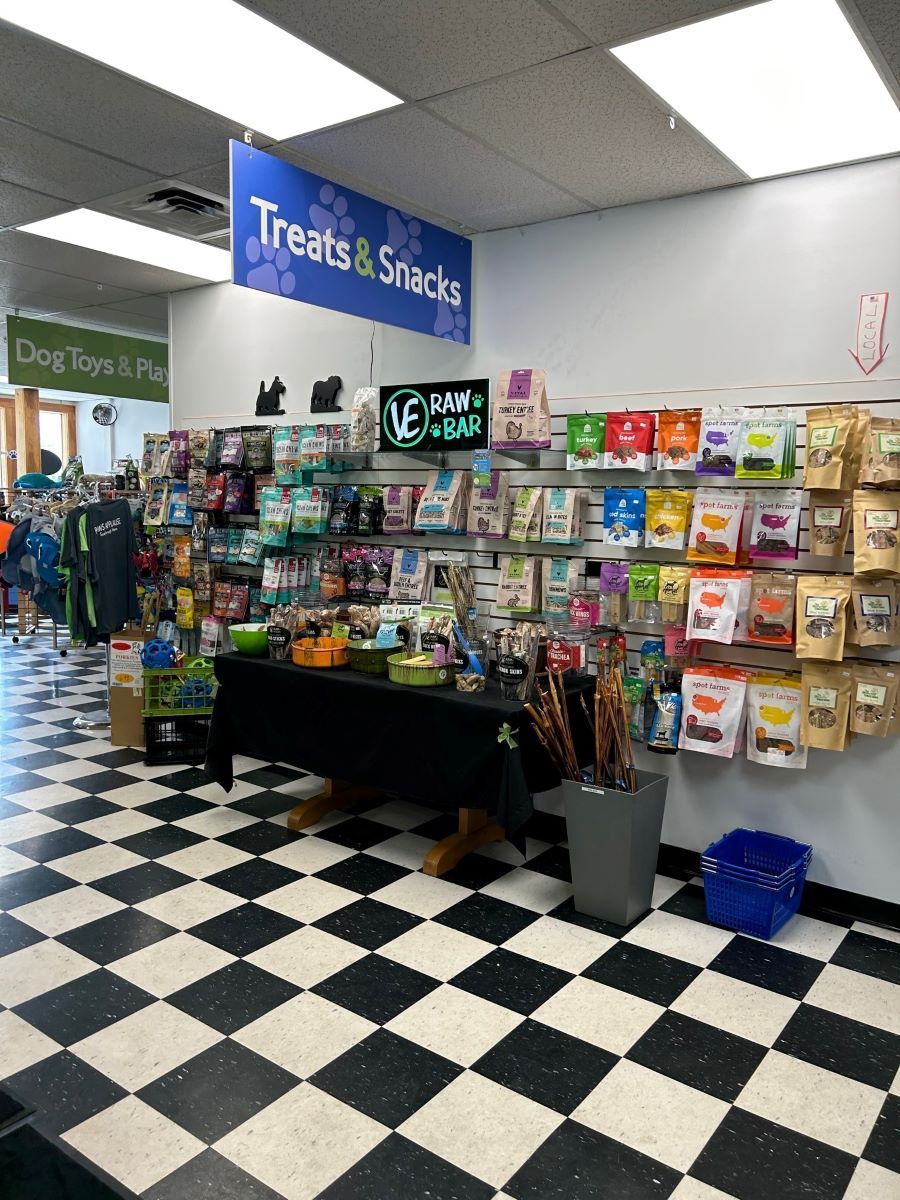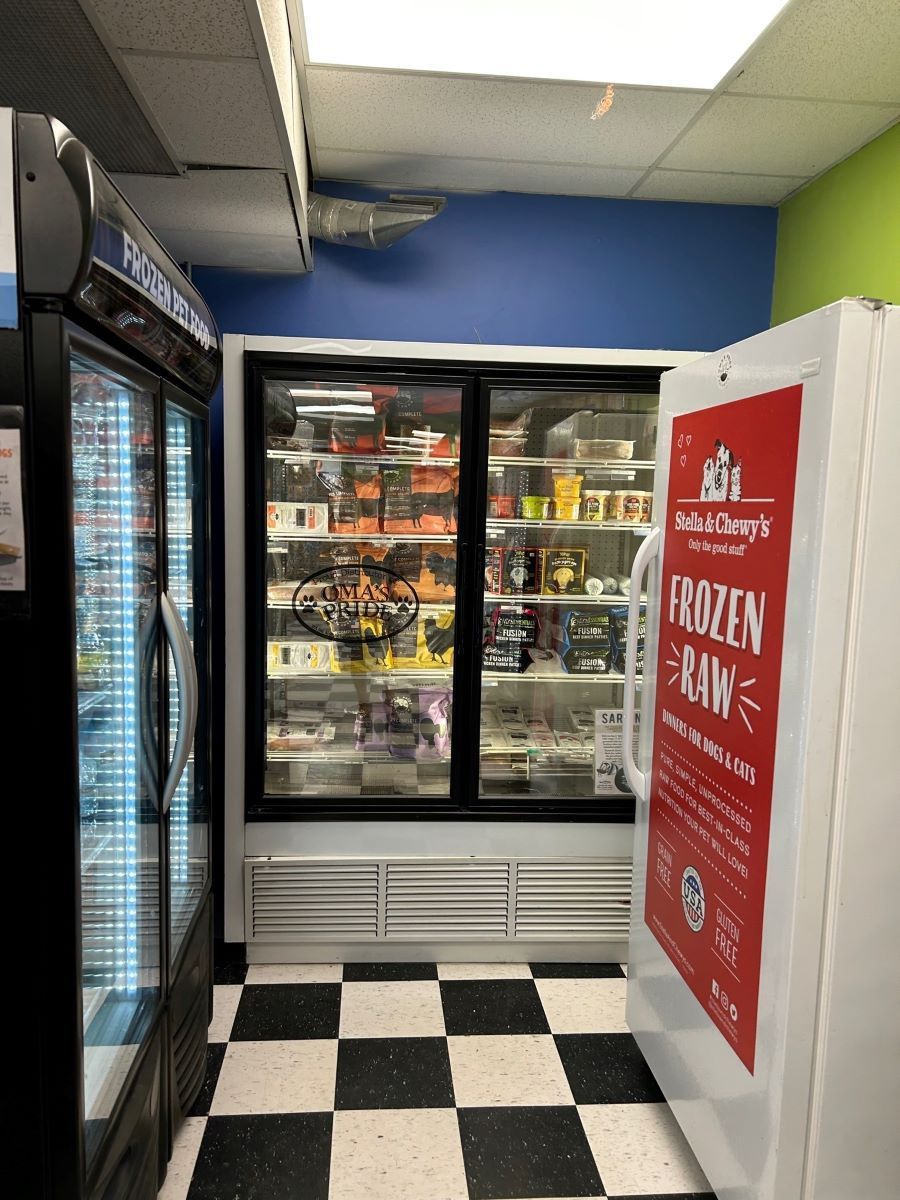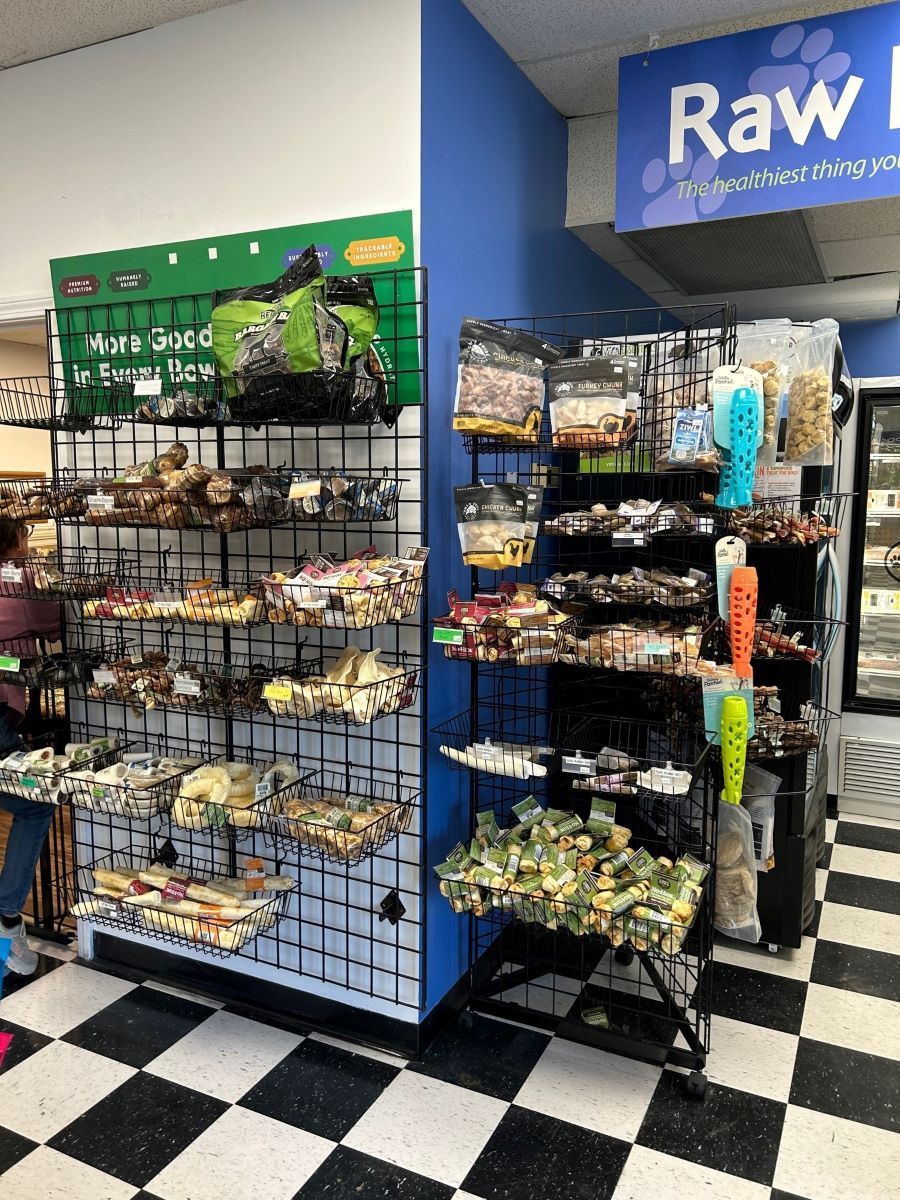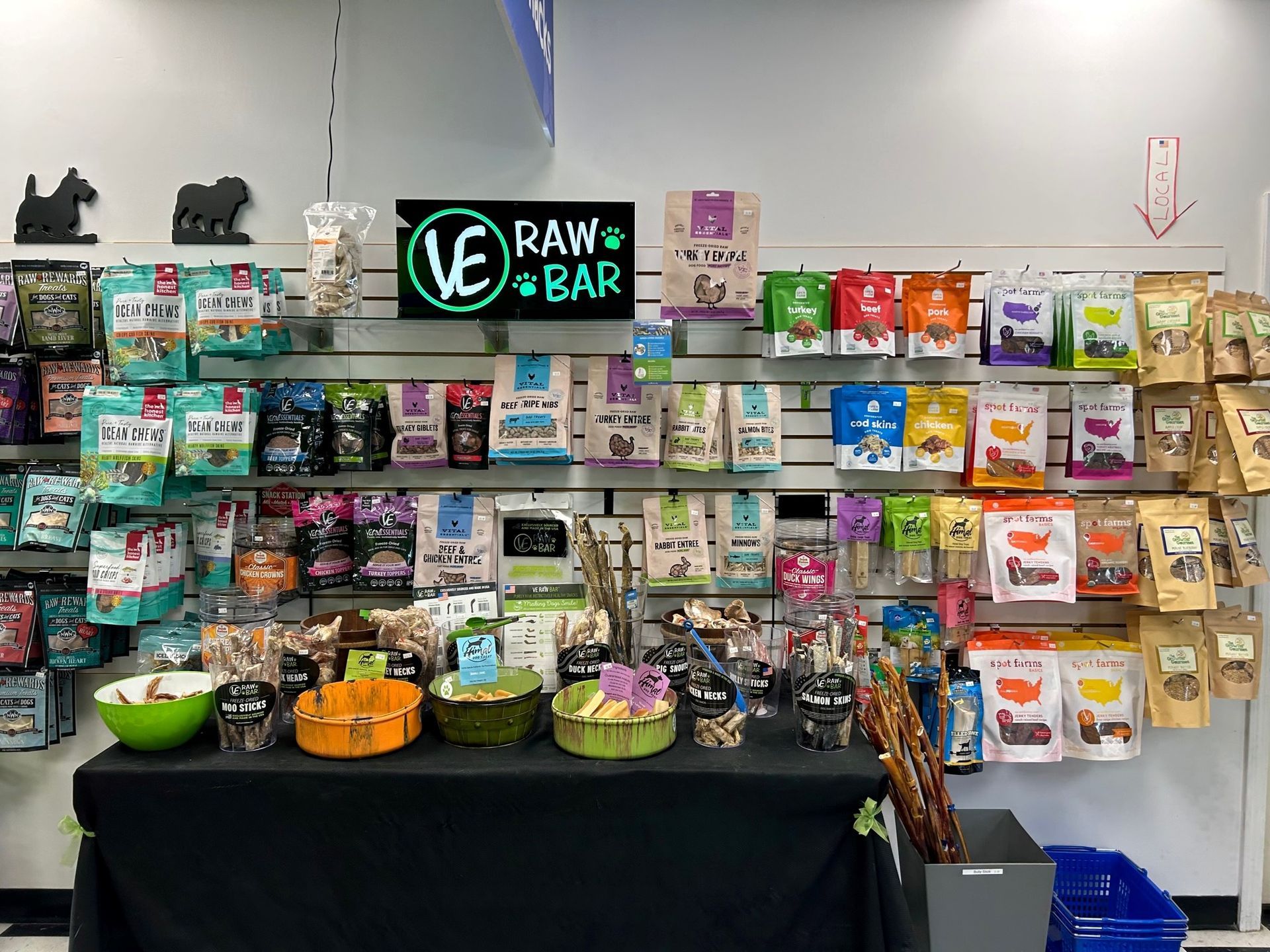Welcome to Paws Applause
207-885-0077
Where the love for animals meets a world of possibilities.
Oak Hill Plaza, Scarborough, Maine
Maine's Best Raw Pet Food Store
Raw feeding is primarily based on the thinking that dogs will do better with a diet based on what canines ate before they became domesticated. Potential advantages of a raw diet include healthier skin and a shinier coat, cleaner teeth, and higher energy levels. Some raw diets include commercially processed raw food, while others are frozen or freeze-dried. Paws Applause also carries a variety of five-star, natural, and grain-free kibble. Wheat, soy, and gluten-free diets are easily accommodated at Paws Applause. We also carry a wide variety of treats to keep the diet consistent. We discern our products and carry treats made and sourced in the USA.
Just like us, our pets are what they eat. Breeders, holistic veterinarians, trainers, and thousands of concerned pet owners are advocating a reassessment of what we feed our animals. Racing greyhounds and sled dogs have long eaten raw food diets. Extending those feeding practices to the family pet is more recently and increasingly accepted.
In order to be healthy, there is a growing belief that dogs and cats need a raw, natural diet. Conventional commercial pet foods cannot supply the nutrients necessary for good health and long life. An excess of the wrong ingredients, such as corn meal and meat by-products, may serve to satisfy a hungry pet initially, but they may also contribute to long-term health problems.
Shifting a pet with an existing health problem to a raw diet may generate improvement. Among healthy animals, a raw diet is likely to help them avoid some of the illnesses that are now becoming common in our family pets. A high-quality raw diet will help promote a long and healthy life.
Raw pet food, also known as a raw diet or BARF diet (Biologically Appropriate Raw Food), involves feeding pets a diet that consists primarily of uncooked meat, bones, organs, and occasionally fruits and vegetables.
While there are debates about the benefits and risks of raw pet food, proponents of this diet claim several potential benefits. Pet owners feeding raw diets testify to these improvements in their pets:
- Improved Digestive Health: Raw pet food often contains natural enzymes and probiotics that can aid in digestion. It may help alleviate gastrointestinal issues like food sensitivities, allergies, and irritable bowel syndrome. Harder, smaller, less smelly stools.
- Healthier Skin and Coat: The nutrient-rich nature of raw food, including essential fatty acids, can promote healthy skin and a shiny coat in pets. This may reduce issues like dry skin, excessive shedding, and dandruff.
- Dental Health: Chewing on raw meaty bones can help clean a pet's teeth naturally. The mechanical action of gnawing on bones may remove plaque and tartar, potentially reducing the risk of periodontal disease and improving overall dental health.
- Increased Energy and Vitality: Some pet owners report that their pets have more energy, improved stamina, and increased vitality on a raw diet. This could be attributed to the nutrient density and bioavailability of raw food, which is said to support a pet's overall health better.
- Enhanced Immune System: Raw pet food advocates believe that feeding a diet close to what pets would consume in the wild can strengthen their immune systems. It may provide essential nutrients, antioxidants, and phytochemicals necessary for optimal immune function and disease resistance.
- Potential Weight Management: Raw diets are often lower in carbohydrates and higher in protein, which may help regulate weight in pets. The increased protein content can promote satiety, while the lower carbohydrate intake can reduce the risk of obesity.
It is important to note that while these benefits are often attributed to raw pet food, scientific research on the topic is limited and conflicting. Raw feeding also carries potential risks, such as bacterial contamination, nutritional imbalances, and unsafe bone consumption. If you are considering a raw diet for your pet, it is advisable to consult with a veterinarian to ensure the diet is appropriately balanced and safe for your specific pet.
Collectively Tracey and Her Staff Have Over 80 Years Experience
Whether you're ready to welcome a new furry addition into your home or seek valuable pet-related resources, Paws Applause is here to inspire, educate, and connect. Please explore our website, discover heartwarming stories, and embark on a rewarding journey celebrating the animal kingdom's magic.
Join Paws Applause and let the applause for our four-legged companions resonate in every corner of your life.
Opening Hours
- Mon - Thu
- -
- Friday
- -
- Saturday
- -
- Sunday
- Closed
© 2024 All Rights Reserved | Paws Applause | Website Designed & Hosted by Maine Street Marketing, Inc., Saco Maine
